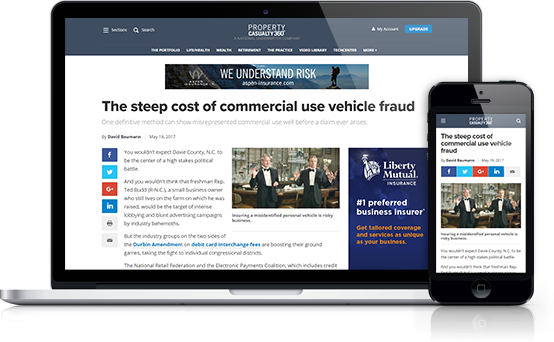You have just cold-called a prospect, and he not only wants to meet right away, but he already has told you on the phone he would like you to bid on the renewal. You’re very excited; you’ve been calling on them unsuccessfully for the past year and your prospect now feels it is fair to give you a shot at his business. The appointment is scheduled and you arrive ready. In the meeting, the prospect explain that every 3 years the company receives three bids from the market. It changed brokers the last time the prospect went through the process and is looking forward to receiving your company’s bid. The prospect has all of the data ready and asks you to send him a list of the markets you would recommend. Other than the incumbent, the other company, like yours, has been persistent in calling. You know both the other company and the incumbent, and they are competitors of yours. The stage is set. Where do you go from here? Most producers feel that this is a fair and level playing field on the surface, and I would agree. The problem is the producers typically accept this playing field and get on with the process. They might slant the playing field their ways through some business lunches and entertaining, and this is certainly not a bad strategy. After all, in a situation that sounds equal in relationships, you need to try and move the relationship meter your way. However, let’s examine this another way. What do you really have going for you at this point? You have data and a one-in-three chance. You’re beginning with, at best, a 33 percent chance of closing the account. You are entering a perfect storm where the outcome may be failure. Here is the problem: You have agreed with the prospect that you peddle a product where all of the products are the same, and it is merely a game of who gets the “hot” market. You are stating you are no better or worse than your competition. Is this really how you feel? “Why am I so anxious to be bunched in with the other average Joes who are playing this game?” So, how can I truly determine my odds? You should not be surprised by my answer: Ask questions. It is your first meeting, so you have not reviewed any policies. How do you uncover how the prospect feels about coverage? How do you uncover how they are going to make their decision? How are you going to uncover their expectations about service? How are you going to find out about their sensitivity on price? We all know the hackneyed questions that are bandied about, so let me give you a few new ones to ask, and I urge you to ask them in this order. 1. How do you annually budget for your property/casualty or benefits premiums? What role does your broker play in the process? What is the budget that you are going to have for this upcoming renewal? Notice I did not ask how much premiums are. 2. What am I getting for my money?” What do you expect for that amount of money? No matter which broker you select, we are all going to be paid approximately 10 percent of your budget in commissions. That is a significant number and it is always fair to ask those questions. 3. Let’s suppose that at the end of the process, you have three proposals, but there are some significant coverage differences. How will you make your decision as to the value of each proposal? Are you going to try and get “apples to apples”? If so, how? 4. If you end up with two proposals and where the pricing is within 1 to 2 percent of each other and the coverages are basically the same, how will you make the decision? What will be important to you at that time? just four sets of questions, you will have defined the rules of the game. You are now in a position to make your decision. Do you still have a 33 percent chance, is your position weaker than that, or have you found some rules here that slant the field in your direction? The famous football coach Otto Graham once told the referees, “All I want from you in today’s game is my fair advantage.” That is what we are seeking as well. Let’s go back and look at the groups of questions. By answering these questions, the prospect is letting us know how much money he has to spend. In addition, if the incumbent broker is not involved in the budgeting process, we have just uncovered a service weakness.
We have set the bar for open communication by disclosing how much money we are going to make. In addition, we have uncovered their expectations of their broker–probably service-oriented.





 Copyright © 2024 ALM Global, LLC. All Rights Reserved.
Copyright © 2024 ALM Global, LLC. All Rights Reserved.









